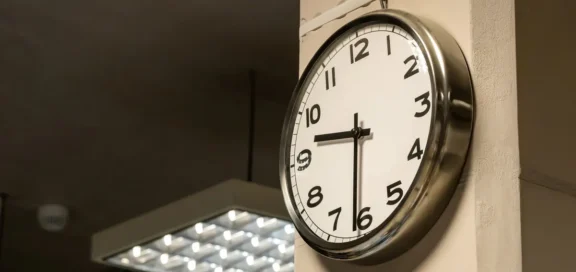The employer and the works council itself accused the chairman of the works council of severe breaches of duty. The chairman of the works council is said to have hired a lawyer for proceedings for the imposition of a fine against the employer involving a six-figure sum, without a corresponding works council resolution. At the same time, there exist minutes of the meeting, signed by another member of the works council, documenting a resolution. Furthermore, the chairman of the works council is said to have informed the employer of the denial of approval without any such resolution concerning the transfer of several employees. The employer subsequently initiated a substitute approval procedure. In addition, the works council accused its chairman to have inadequately informed the works council concerning the circumstances of the aforementioned transfer as a result of alteration within the establishment, as the chairman of the works council would have been personally affected by the transfer. After the exclusion proceedings were initiated in court, the works council dismissed the chairman of the works council and elected a new chairman.
The Higher Labor Court rejected exclusion of the previous chairman of the works council. Based on the aforementioned circumstances, it was unable to determine any major breach of the duties as a member of the works council or chairman of the works council. Essentially, the court found that based on the minutes, there was indeed a resolution passed concerning the initiation of an administrative fine procedure. The court unresolved the issue as to whether the persons involved were aware of the amount of the petitioned administrative fine, because errors or a lack of awareness, be it also due to intentional concealment by the chairman of the works council, do not constitute a major breach. The court also did not consider conduct in connection with the rejection of approval to be major breach of duty. It is indeed true that no works council resolution existed. Because the works council carried out the substitute approval proceedings, however, instead of granting approval, the Higher Labor Court assumed that the rejection of approval reflected the actual will of the works council body. The fact that the chairman of the works council may have possibly informed his colleagues serving on the body about the background of the transfer also did not constitute a major breach, according to the Higher Labor Court.
The decisive factor for the Higher Labor Court, however, was also that a new chairman of the works council had been elected in the meantime. The possibility of exclusion from the works council does not represent a sanction, but instead assumes that further collaboration is unreasonable. Because a new chairman had been elected in the meantime, the existence of a breach of duty was no longer decisive anyway; there was no danger of recurrence.
Recommendation for practice:
The option of excluding a member from the works council is only a powerful tool at first glance. Various decisions of the labor courts indicate that seldom is it possible to assume an adequately severe breach. What is more, the decision also indicates another decisive problem. If the works council has elected a new chairman after initiating exclusion proceedings, a repetition occurrence is ruled out, so that there is generally no more latitude for an exclusion from the works council. Add to this the fact that a decision on exclusion from the works council only takes effect upon becoming legally final. The member of the works council to be excluded can thus still remain in office for a very long time via an application for leave to appeal before the Federal Labor Court. Even if the exclusion decision became legally final, the excluded member of the works council can run for reelection during the next works council election and also be elected as chairman. The exclusion proceedings therefore cannot bring about long-term resolution. Therefore, the employer should carefully consider in advance whether he initiates such proceedings, which in many cases will be resolved over time.











